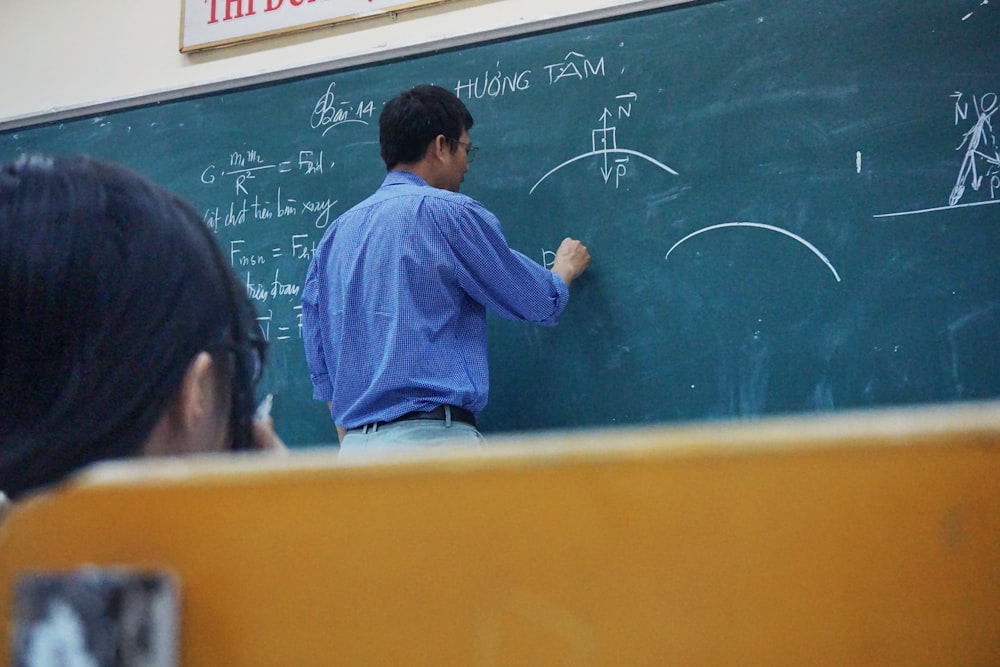Thinking that research is just for graduate students? Think again. Undergraduate research programs serve a vital role at virtually every university across the nation. These departments exist to get undergraduates involved in high-level university research. You may feel overwhelmed when trying to figure out how to get involved with your campus’ research program.
Fear not — read on for College Magazine’s ultimate guide to all things undergraduate research.
The hardest part: What do YOU find interest in?

Most undergraduate research programs exist to help students find what passions they have and how to turn it into something tangible. This requires a lot of internalized thinking and decision making from you. To get a research grant, evaluators want to see passion and something that has meaning specific to you and your interests.
This may seem stressful, with you thinking, “Jeez, seems like a lot of pressure to come up with something good.” However, this is the beauty of the vagueness of research. It has a very individualized approach to learning. “I think one of the best parts of undergraduate research is that it’s a chance to individualize your education. It can really be a passion project and something that you’re like: ‘this is really cool,’” Associate Director of Undergraduate Research at Northwestern University Megan Novak Wood said. “I didn’t know that I could take an in-depth dive into this, let alone do a whole project that’s now on my resume.” The personable aspect of research gives students this unparalleled autonomy over what they want to investigate and how they want to go about it.
Making the dream a reality: Planning

Once you begin to have a semblance of the research project you envision, you should begin working with your undergraduate research office to work out the logistics. What timeline do you have? What kind of things do you hope to get from this experience? The staff at your UGR office will have the tools to help form your ideal research plan.
Most students do not go into an undergraduate research office with the definitive niched idea for their research planned out. They go in and they have ongoing conversations about how to develop something you as the student will be proud to call your own. “My research was doing vaccine design and development for Kaposi sarcoma-associated herpesvirus. This basically just involved a lot of molecular cloning–a pretty typical undergrad task–as well as cell culture work,” recent UCLA graduate Claire Harelson said. The research you may find yourself involved with will, with time and effort needed for undergraduate research, be something you find yourself prideful to call your own.
Wait, how can I afford to do this research?

Fear not, as grants will become your new best friend. Undergraduate research offices will follow a protocol that reviews your proposal for grant eligibility. This usually comes in a lump sum called a stipend, which supports the lifestyle aspects of your research that you would need to be successful. Northwestern University sophomore Julia Schmulewtiz received a $3,000 grant this summer for her research: “I’m developing a computational model to quantify glenohumeral stiffness and the influence of muscle properties on active shoulder stability,” Schmulewitz said. The grant process may come off as an intimidating aspect of research. But, universities want to give out these grants, meaning they will allow you to apply multiple times as well as offer feedback on proposals.
But I can’t do this alone!

And you don’t have to! Faculty advisors come as one of the biggest perks of doing research. Not only do you get to make a more meaningful connection with university faculty, but you also then have that relationship to back you up on things like letters of recommendation. Faculty also goes beyond just the professor you have a class with. People of all specialties, ages, and titles perform on-campus research. Many of them could use a research assistant and/or be willing to mentor you in your own project. Students find themselves with a variety of passionate people on research teams. “[My research] was faculty-led, but I worked most directly with a graduate student on a day to day basis. I really liked this set up because it allowed me to learn my actual lab tasks/skills from the grad student who was closer in age and skill level to me,” Harelson said. You have no need to feel scared if you do not know any faculty prior to your research idea. The undergraduate research office suggests plenty of ways to reach out and the processes of contacting various faculty and staff actually make for great practice for future endeavors. “Often, students will reach out to faculty with whom they’ve had classes or are familiar with, but the most common way for students to get into research is actually just to go on their department’s website and look at what the different faculty specialties are, and then reach out that way,” Program Representative for the Undergraduate Research Center of Humanities, Arts, and Social Sciences at UCLA Veronica Kimaz said. You will find help wherever you go.
What am I going to get out of this?

Sometimes it can seem that doing research or being a research assistant involves a lot of supplementary work that does not give way to a lot of hands-on work. However, you learn life skills along with the hands-on work you would do. “Most–if not all–students are taking cases in their major and can talk about those sorts of things. But–if you were to go into an interview and tell them about how you developed your own project, you had to develop critical thinking skills, you had to do analysis, you have experience sharing your work,” Novak said. Research does not mean you simply give your work to support broader studies or knowledge. Being apart of a professional team will provide you with skills to benefit you in the job search, with graduate and professional school as well as the tools to become a lifelong learner.
And when it’s done? Results

When you finish a research project, various ways you can present your findings or your own personal work will likely cross your mind. Your facility adviser will assist you with this process and you will find the best fit for you. Your research will then follow you as a testament to your passion and your ability to produce applicable work. Also, it never hurts to have the resume addendum citing the specific things you did over the course of your research. At the end of it all, research exists as another part of the college experience that serves to enhance your studies outside the classroom. If you have any interest in doing undergraduate research, follow up this article with your own university’s undergrad research office to put your plan into action.



















